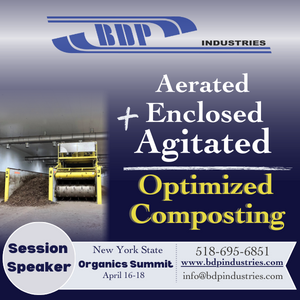BioCycle June 2010, Vol. 51, No. 6, p. 10
Springfield, Missouri
PROPONENTS OF LANDFILLING YARD TRIMMINGS MAKE LAST-MINUTE MOVE
The clock ran out May 14 on an amendment to change the definition of a landfill in Missouri state statutes and effectively overturn a decades-old ban on landfill disposal of yard trimmings. Missouri is one of 23 states that have passed laws since the early 1990s prohibiting yard trimmings in landfills. Several of these statutes have built-in exceptions – for instance yard trimmings are still accepted in C & D and inert landfills in Georgia as well as in bioreactor landfills in Missouri (a bioreactor landfill is one in which the controlled addition of liquid waste or water accelerates both waste decomposition and gas regeneration).
The proposed amendment would have lumped Class 1 landfills equipped to capture methane with bioreactor facilities into the umbrella category of “landfill gas recovery facility” and made both eligible to receive yard trimmings. “At end of the day, it never came up because they ran out time,” said Patrick Geraty of St. Louis Composting. “We fully expect to see this legislation again. Now we’re done until January 2011. We’ll see what that brings.”
Charlotte, North Carolina
SHIFT IN YARD TRIMMINGS MANAGEMENT LANDSCAPE
Mecklenburg County commissioners recently amended its 10-year waste management plan (adopted only 18 months ago) to make way for diversion of Charlotte’s curbside recycled yard trimmings away from a county composting facility and instead to a planned privately held, 49-megawatt, $300 million waste-to-energy plant called ReVenture Park. “We currently take in about 92,000 tons a year of yard waste,” says Steve Elliott, operations manager for the county-run Compost Central. “Probably 40 percent of it is from curbside collection in the city of Charlotte and the rest is from homeowners and the landscaping folks. They’re talking about diverting maybe 40 percent of our material to the biomass plant, which won’t really affect us very much.” He adds that about half the yard trimmings the county collects from all sources are sold to local paper mills to fire their boilers. Roughly that same portion would go to the biomass plant instead. “What we’re going to do is just divert the curbside collection trucks directly to the biomass plant – instead of coming here and having us reload it.” The county would pay the ReVenture biomass plant developer and operator, Forsite Development Inc., “a token amount” to take the yard trimmings, he adds.
According to the Charlotte Business Journal, the project will also affect the diversion of yard trimmings from the communities of Cornelius, Davidson, Matthews, Mint Hill, Huntersville and Pineville – that is if they, and state environmental regulators, sign off on the agreement. Also according the Journal, Forsite wants to break ground on the ReVenture biomass project by the end of the year in order to qualify for $60 million in tax credits.
The ink isn’t dry on the deal with the county either. “What passed was an amendment including the option to do what ReVenture is proposing,” says Cary Saul, director of land use and environmental services for Mecklenburg County. The proposed cost for ReVenture taking in up to 50,000 tons of yard waste is $50,000. “That’s $1 a ton – we couldn’t pass that up,” he says. The fact that debagging was not a requirement made the deal additionally attractive, he adds. “They’re talking about being ready to receive yard waste by July 2011,” but they don’t yet have the facility permit. The proposal also calls for ReVenture to begin taking the county’s municipal solid waste for $25 a ton once a contract with the local landfill expires June 30, 2012, a deal the Journal reports could be worth $10 million annually. Saul said the plan to build what the company is terming a “fuel preparation facility” is basically a dirty MRF that would generate energy by incinerating trash, wood and sewage sludge.
Wheaton, Illinois
TOPDRESSING WITH COMPOST
Desire of homeowners to avoid the multiple deleterious effects of pesticides, herbicides and fertilizers by turning toward more natural means of keeping their lawns green and healthy includes using compost, says Keith Schuler, who has seen his Wheaton, Illinois-based organic residential lawn maintenance service, LawnStylist, grow steadily over the past 12 years. “It’s bigger on the coasts but it’s slowly growing here in the Midwest,” he says. “It’s coming. People are more open to trying more natural methods – particularly those that yield results.”
Schuler always includes a topdressing of compost with his lawn service, anywhere from one-quarter to one-eighth inch annually. “I overseed at the same time if I can sell the client on it because compost is a great medium for overseeding,” he says. His tool of choice for compost application is the Ecolawn Top Dresser, which he finds both faster and more efficient than other models he has used. When spreading compost, “the drier it is the better,” he adds, along with having a C:N ratio of at least 10:1. “Twelve to one is even better,” Shuler says. “The one I apply is 16-to-1 manure-based compost.” But even more critical than providing fertility is giving the soil microbiology a boost. “You’re adding biology when you’re putting compost down,” he says, “and your applying nutrients at a proper ratio.”
Enosburg Falls, Vermont
FARM COMPOSTER RECEIVES ENVIRONMENTAL EXCELLENCE AWARD
Diamond Hill Custom Heifers Farm in Enosburg Falls, featured in the August 2006 edition of BioCycle in an article entitled “Extracting Thermal Energy From Composting,” has been honored with Vermont’s “Governor’s Award for Environmental Excellence & Pollution Prevention.” A letter to the farm’s owner, Terry Magnan, from Jonathan L. Wood, secretary of the Vermont Agency of Natural Resources, stated in part: “Your award-winning project stands out as a model that should inspire all Vermonters to find innovative approaches to conserve natural resources, safeguard human and environmental health and prevent pollution before it is generated.”
Due to the start of a busy farming season, Magnan missed the May 3 awards ceremony. “We got started real small and had the idea of throwing some black pipe in the manure pile and getting some heat out of it,” he says of the on-farm thermal energy project. “It was a stepping-stone process.” He credits Brian Jerose, a partner in WASTE NOT Resource Solutions, for both nominating Magnan for the award and for writing the grant proposals that leveraged state and federal funding for the renewable energy project in the first place. “It’s a very efficient, low input system,” Jerose says, requiring very low energy to operate (the whole system operates on 0.25 HP). “It draws hot vapors through existing composting manure piles. The hot vapors heat the water up to 140°F and at the same time you’re aerating piles.” Magnan likes his system because it’s a simple and symbiotic closed-loop: The livestock provide the manure for heating the water, and the hot water produced keeps the farm operation running clean. “It’s a complete cycle,” he says. “One enterprise is helping out the other. It’s not very complicated – it’s all just good common sense.”
Sunbury, Pennsylvania
GROCERY CHAIN HIRES SUSTAINABILITY COORDINATOR
Weis Markets, a 98-year old grocery store based in Sunbury, has hired Patti Olenik – formerly a solid waste and composting specialist with the Pennsylvania Department of Environmental Protection (DEP) – as its first-ever sustainability coordinator. Olenick will help the company develop sustainability and environmental responsibility initiatives.
“Our Weis Market store in State College Borough is involved in the ‘Greening State College’ pilot program,” Olenick says of the DEP-funded project. “This is a partnership with State College Borough, Centre County Solid Waste Authority and Penn State University. Phase I is evaluating food waste collection from commercial businesses and incorporating the organic material into the borough’s yard waste composting program. Weis Markets is the only grocery store involved in this phase of the program.”
Weis Markets – a member of the U.S. EPA’s Green Chill program – operates 164 stores throughout Pennsylvania, Maryland, New York, New Jersey and West Virginia. Steps to reduce the company’s carbon footprint include installing energy efficient equipment and a recycling program that captures 23,000 tons of cardboard, 750 tons of plastic and 329 tons of paper annually. “This is a tremendous opportunity for Weis Markets to expand its successful recycling program by adding the diversion of organic wastes to the list,” Olenick said. “Organic waste can easily contribute 50 to 75 percent of the overall waste generated on a daily basis. We are seeking partners that will enable Weis Markets to divert and recycle the organic wastes with the goal of decreasing our business’s environmental footprint.”
Seattle, Washington
PACKAGING WISELY
The City of Seattle is requiring all food service businesses to find packaging alternatives to throwaway food service containers, cups and other products. By July 1, 2010, all food service products designed for one-time-use must be replaced with one-time use products that are either compostable or recyclable. Food services business include restaurants, grocery stores, delis, coffee shops and institutional cafeterias. Phase one of the ordinance applied only to expanded polystyrene (sometimes called “Styrofoam”). The foam ban took effect January 1, 2009.
Harrisburg, Pennsylvania
RECYCLING FUNDING EXTENDED
Pennsylvania Governor Edward Rendell signed a bill extending funding for recycling and waste tire cleanup through 2020. The program, launched in 1988, is funded by a tipping fee of $2/ton on all waste managed at municipal waste landfills and resource recovery facilities in the state. The fees generate about $35 million annually to support municipal recycling programs. According to Rendell, recycling diverts 5 million tons/year of materials from landfills, and has “helped businesses and local governments avoid more than $1 billion in disposal costs since the program was created.”
June 21, 2010 | General










